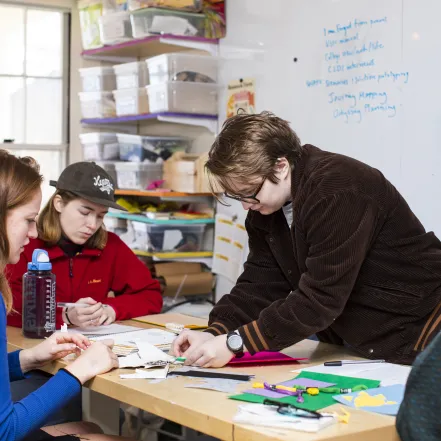This class is a hands-on introduction to the techniques and tools of the Design Thinking Initiative. This methods course teaches students how to make an idea tangible by starting with a sketch, translating drawings into physical models, soliciting feedback, improving designs, rendering designs using CAD software, and fabricating objects using 3D printers, laser cutters, and other tools. Additionally, students learn to approach tool and material use responsibly by considering the lifecycles of products. With this foundation, students are motivated to push the boundaries of these resources by looking at innovations in the field. The goal is that students leave inspired and confident to navigate resources, troubleshoot as a maker, and materialize your visions. S/U only. Enrollment limited to 12. Instructor permission required. (E)
